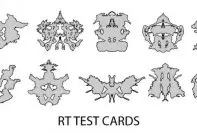Definition
“Personality is the dynamic organization within the individual of those psychophysical systems that determine his characteristics behavior and though” (Allport, 1961, p. 28).
“The characteristics or blend of characteristics that make a person unique” (Weinberg & Gould, 1999).
Different theories have been discovered by different psychologists in an effort to properly define personality. Some of the famous thinkers in the personality psychology department have been world renowned psychologists like Sigmund Freud and Erik Erikson. There have been plenty of theories developed about personalities throughout the century. Some of the important personality theories are listed below.
Biological Theories
Biological theories suggest that genetics are directly responsible in shaping a personality type. Hans Eysenck, one of the most popular biological theorist, Hans Eysenck, came up with the idea to relate various aspects of biological processes and personality.
For instance, further describing his theory of introversion, he showed that introverts had high cortical arousal. This causes them to avoid stimulation. On the other hand, extroverts seek out outdoor experiences as they have low cortical arousal.
Behavioral Theories
Environment is just as responsible in shaping a person’s personality, which in Freud’s words is called nurture. Behavioral theory only studies the observable and measurable behaviors in the environment. Internal feelings and thoughts hold no meaning in determining a personality of an individual via behavioral theory.
Psychodynamic Theories
Psychodynamic theories are mostly influenced by the works of Sigmund Freud. Sigmund’s works about the effects of unconscious mind and childhood experiences on personality influenced the formation of psychodynamic theories.
The personality theory of Freud is also called the Tripartite Theory because of the three components. According to Freud, three components of personality were:
- Id – The instinctive and primitive component of personality that is responsive for all urges and needs is referred as id. It operates on pleasure principle, which suggests that every wishful impulse should be satisfied regardless of the consequence.
- Ego – It’s the decision making component that works according to the reality principle. It mediates the demands of the id, superego and reality.
- Superego – This component of personality is responsible for the morals and values of the society.
Erikson is another renowned psychologist in the world of psychology, who came up with his own psychodynamic theory. He suggested that personality has to overcome variety of conflicts at various stages.
Humanist Theories
Abraham Marslow and Carl Riogers are among the top human theorists to have come up with humanist theories. These theories deal with the importance of self actualization and individual experience, which helps in development of personality and motivates behavior. Free will and concept of self-actualization is vital for an individual’s personal growth.
Trait Theories
The descriptive terms, used to describe a person, such as out-going, short tempered, generous are all traits. Trait approach is one of the most vital areas of study in psychology that helps identify a person’s personality, as they can be defined as a stable characteristic that causes a person to depict constant responses in all situations.
These trait forms are unique from one individual to another. The theory designated to identify and measure individual personality characteristics can be defined as trait theory.
Type Theories of Personality
Type theory of personality was first proposed by a Greek physician, Hippocrates, in 400 B.C. He is now known as the Father of Medicine. He grouped the people in four temperament types: (Due to four types of humors – liquid substance within the body).
- Sanguine: Cheerful, optimistic due to high amount of blood in body
- Melancholic: Depressed, sad, morose due to black bile
- Choleric: hot tempered due to yellow bile
- Phlegmatic: Slow moving, calm, unexcitable due to phlegm
Sheldon was another type theorist. He described the major structural components of human body (physique) and related temperaments. He classified people into three different categories based on the human body structure.
- Endomorphy (Spherical appearance, round body): Traits of relaxation, love of comfort, pleasure in digestion, dependence in social approval, deep sleep, need of people when troubled.
- Mesomorphy (rectangular body with predominance o bone and muscle): Assertive posture, energetic character, directness of manner, need of exercise, unrestrained voice, need of action when troubled.
- Ectomorphy (Linear, thin, light muscled): Overly fast reaction, sociophobia, resistant to habit, inhibited social address, poor sleep habit, youthful intend ness, solitude when in trouble.
Carl Jung established a theory, which saw universal types in human personality. The types categorized by Carl Jung are present in all of us. But, certain types are predominant over the normal mode of organizing our experience.
Type A
One of the most popular Typology in personality is Type A and Type B personality developed by Friedman and Rosenman in 1974.
Major Symptoms of Type A personality are:
- Free Floating Hostility
- Impatience and Time Urgency
- Competitive Drive
Type B
The second typology, Type B, is completely opposite of the Type A personality in terms of behavioral characteristics. Major systems of Type B personality are:
- Relaxed
- One thing at a time
- Express feelings
Authoritarian Personality
Adorno et al. proposed that prejudice was the result of an individual’s personality type. A questionnaire was also developed and piloted, namely F-scale, where F stood for Fascism.
Adorno’s series of studies concluded that harsh upbringing of children was most likely to result in the development of an authoritarian personality. Individuals with tough strict parents weren’t able to show their aggression and hostility towards their parents, and thus they decided to focus on weaker targets. This is kind of how bullies are formed.
General Characteristics of an Individual with Authoritarian Personality
- Obedient to superiors and hostile to inferiors.
- Rigid and stubborn with their beliefs.
- Conventional in nature.
Fascistic Characteristics shown by Individuals with Authoritarian Personality
- Respect for authority, submissiveness.
- Obsession with desire to achieve higher rank and status.
- Power is their major focus.
- Ethnocentrism – tendency to favor their own ethnic group.
Critical Evaluation
- Not all prejudice people can be categorized as authoritarian.
- It’s no guarantee that harsh upbringing always result in authoritarian personality.
- Doesn’t explain a group’s prejudice against any certain group and not others.
- It’s almost impossible for every member of a group, prejudiced against someone, to have an authoritarian personality.
- Also, the F-scale scores received as a result of studies conducted in the 50s is better explained by lower educational level. And, Adorno had very limited samples to base his theory on.


